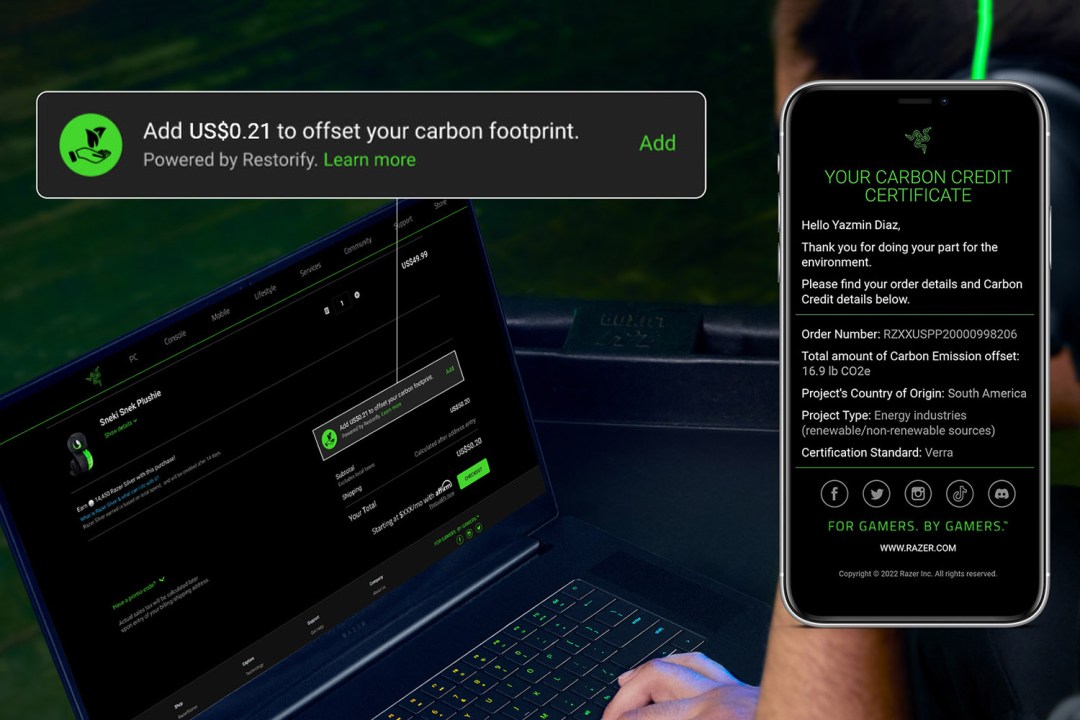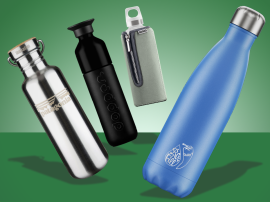Razer steps up eco credentials with carbon offsetting scheme
Restorify programme is also open to other retailers

PC peripheral king and RGB lighting obsessive Razer has launched a new sustainability initiative, which lets customers granularly carbon offset their online shopping carts and lower their environmental footprint. Razer Restorify uses behind-the-scenes maths for fractional offsetting, so you know exactly how much CO2 that must-have mouse or kick-ass keyboard took to produce, and lets you pay a specific amount to make up for it.
Carbon offsetting certificates normally deal in round numbers – typically metric tonnes – and aren’t broken down per item when you click that checkout button. Restorify knows that a Razer gaming mouse produces 7.73kg of equivalent CO2, so can sell a carbon offset certificate for $0.20 instead of $20. You’ll be able to see the exact amount before reaching for your credit card – something Razer reckons will encourage more of us to do our bit for the planet than the more nebulous offset calculations done by other retailers.
The scheme, launched in partnership with carbon reduction campaigners like GoNetZero, is also entirely traceable. Once you’ve made an order you’ll get an emission offset certificate, which lists the country of origin and the specific offsetting programme used. It never uses carbon credits from registries that have yet to actually start offsetting, and everything is recorded digitally, so you can track your carbon offsetting over time.
Restorify is already live on Razer’s web store, and the service is being opened up to other retailers to add into their online shopping systems. The firm’s financial tech wing already has 50,000 merchants using its other products, and has partnered with Amazon Web Services to make it available to 100,000 more across 150 countries. It’ll estimate the carbon footprint of a business’s products if they can’t calculate it themselves, so smaller brands can get involved as well as the big boys.
It’s part of Razer’s aim to go net zero by 2030 – no small feat, given it sells millions of mice, keyboards and other gaming gear every year.



